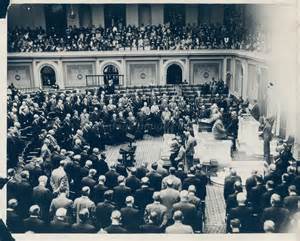
Going into the just-completed special session there were a lot of questions about what the outcome would be. First, a number of lawmakers didn’t even want to have the session. What kind of obstacles would they put up?
Many, particularly in the House, wanted to make cuts without using the state’s Rainy Day Fund – a pivotal part of the governor’s plan. Would they end up using those revenues and if so, how much would they tap?
And given recent history, was there any way they could beat the clock and come to some sort of conclusion with more than just seconds to spare?
Well, all of those things were answered and there seems to be broad agreement that the outcome of the session was generally positive. Yes, there were tensions. There always are these days. But at the end of the day, the deal that was worked out was in the classic mold of the political compromise – all sides seemed to get something of what they wanted, while at the same time walking away with less than they hoped for. To quote House Republican leader Lance Harris, “As long as all parties are not happy, it’s a compromise.”
Of course, that may not be the ideal way to set state policy, but it’s the way democracy operates and seen through that lens you have to say the process seemed to work. That said, what does that tell us about where we’re headed in the all-important regular session that’s supposed to focus on long-term solutions to the state’s ongoing budget woes?
For one thing, the special session amplifies just how tight the state’s budget has gotten. Those that wanted to make cuts without using the Rainy Day Fund were never able to come up with a viable way to do that. And even after the House came up with a plan that used just $75 million of the $119 million rainy-day dollars the governor wanted to tap, it became apparent that most people couldn’t swallow the cuts to public schools, higher education, health care, and corrections that came with it.
What was perhaps most telling, is the fact that when negotiations were going on towards the end, the dollar difference between the two sides totaled no more than just a few million dollars – pocket change in a $9 billion dollar budget. In fact, the final deal included shifts or cuts in funding of just a few hundred thousand dollars.
What that tells you is that the state’s budget, by any measure, is pretty darn tight and even fiscally conservative budget cutters haven’t had much luck in finding cuts of any significance that a majority of their colleagues could view as palatable.
As it turns out, just as most lawmakers were headed home from the session, the administration was releasing the executive budget for the 2018 fiscal year which starts July 1. Predictably, it’s more of the same: inflation isn’t accounted for, there’s no money for state employee raises, TOPS isn’t fully funded, no growth in public education funding, more cuts to hospitals, and not enough money to draw down the full match of the federal transportation dollars Louisiana is entitled to.
Clearly, you can do these types of things for a while, but not forever. And we need to remember, we’ve been on much this same treadmill for nearly a decade. At some point we’re going to have to reinvest in our people, our students, our schools, and our roads. If not, we’re going to find ourselves at another point where we’ve fallen so far behind we’re never going to catch up.
Theoretically, the time to address that will come in the regular session where the governor is expected to lay out a series of recommendations to address our broken tax and budget system and put us on a more predictable and sustainable path for the future. Is it possible that lawmakers will be any more willing to tackle those politically difficult issues this year than they were any of the last few?
That’s highly questionable.
Certainly, the tone of some of the debate during the special session suggests it will be a tall hill to climb. But then again, maybe the budget frustrations lawmakers have been dealing with year-in and year-out could finally be taking their toll. We saw compromise that rose all the way to getting a two-thirds vote on something a lot of legislators were totally opposed to when the session began.
Maybe that’s a reason for just a small degree of hope.
